A whopping 12 million American seniors live alone and nearly 70% of them are elderly women. So, why are so many elderly people striking out on their own instead of living in senior care facilities?
Well, the answer to that one is simple – older adults value their freedom just as much as anybody else!
Plus, would you like to be abruptly removed from your community and the home that you have lived in for decades? I’m sure you answered that one with a resounding “No”!
Then, don’t be surprised if your elderly parents insist on living on their own instead of moving to a senior care center or even with family members.
They are no different from the 61% of seniors across the country who want to live on their own, with the services of a caregiver if and when required. Compare this to the mere 17% who are comfortable moving to senior care centers and the paltry 4% who don’t mind living in a nursing home.
In fact, less than 10% seniors want to move in with family, which should tell you how fiercely our elderly parents guard and pride in their independence.
Having said that, whether you are a senior who is living alone/intends to live alone or are concerned about your elderly parents who are living alone, safety is something that none of us should take for granted.
Safety for seniors is a joint effort that calls for participation from everybody. Continue reading to know how seniors, their family members and the community can play a role in making life better and safer for older adults.
Health Safety Tips For The Elderly Living Alone
As you get older, your body slows down and almost all physiological systems take a hit. So, seniors have a heightened risk of suffering from health conditions such as arthritis, cataracts, glaucoma, diabetes, hypertension and nutritional deficiencies.
The worst thing you can do to yourself, once you are past the age of 40, is to continue to retain your vices. So, if you don’t want to needlessly stress your body any further:
- Cigarettes have to go.
- Cut down on alcohol, colas, sugar and coffee.
- Insist on nutritionally rich food items and balanced meals.
- Stick to your meal timetable.
- Regular workouts are crucial for both mental and physical health.
- Make stress reducing activities a part of your lifestyle.
- Don’t skip regular health screenings, required medicals tests and immunizations.
If you are a family member of a senior living alone, take weekly grocery shopping trips with your elderly parents. This way you have some modicum of control over what they buy and eat.
Socialize Your Way To Safety
A friend a day keeps trouble away: Make sure you have at least 7 friends in your inner circle, one for each day of the week. Talk to one of them every day. In fact, set a timetable for it such that you make the call at a particular time of the day, and right after the call, you take your meds for the day.
This way, you can get both things done without forgetting about them. It does not have to be a long-drawn-out conversation; just a few minutes of chitchat will do.
The goal here is to ensure that somebody is always aware of your presence and in case of an untoward occurrence, will realize that you haven’t popped up for a while before it’s too late.
Neighbors sure can help: If you have never been the kind that mingles with his/her neighbors, now would be a good time to start. Get to know your neighbors and schedule your outdoor chores such that you get to say “hi” to at least one neighbor.
The thing to understand is that your neighbors may not be your best friends (no harm in making them your best friends, of course), but they will be the first ones to notice when something is amiss or wrong.
Also, mingling with your neighbors means that you all have someone to water the plants when one person is away and you get clean and clutter free sidewalks and driveways on both sides of the house.
Medication Related Safety Precautions For Elderly Living Alone
Nobody ever forgets to take their pain meds because the physical discomfort serves as an effective reminder. However, when it comes to routine/regular medication, whether you are young or old, it is easy to forget.
Of course, if you are a senior, missing even a single dose can cause trouble; not to mention that you may forget where you have kept the bottle.
If you do miss a dose, don’t take two doses at once, unless you talk to your doctor about it. That said, here are a few tips that will help you to be more diligent about your medication schedule.
Keep all your medicines in one box/drawer
Any plastic or cardboard box should do, or you could store them in the drawer of the bedside table. I would not recommend keeping them in the vanity cabinet because some pills will soak up moisture and deteriorate if you don’t replace the cap back on properly.
Store meds by time and place
What I do for my mum is store her meds in boxes according to the time of the day, in the room of the house that she is likely to be in at that time. For example, I know that in the afternoon, she needs to take her pills after lunch. So, I have her afternoon meds stored in a small plastic box on the kitchen island because I know she sets her lunch plate there.
Put reminders around
My mom isn’t particularly forgetful but just to give her that extra nudge, I have put up a sticker on the refrigerator door that Says in BOLD, “Mom take your meds”. I also have a small picture frame on the kitchen island. This one has a photograph of me giving her a bear hug and the words in bold on the side of the photograph saying, “Have you taken your meds as yet?”
Calling can seem a bit pesky and annoying. You can set reminders on cell phones or use an alarm clock that lets you record your voice and play it as an alarm. For seniors, who generally remember to take their meds, a few strategically posted notes get the job done.
Keep an easily accessible list of your medication
A bulletin board in the living area and the door of the refrigerator are ideal spots for such a list. This way, if you ever need in-home medical assistance, emergency personnel will get quick access to information about the prescription medicines you are taking.
Offer information on your ailments and treatment
Take things one step further and wear a medical ID bracelet or a pendant which will be your very own medical information tag. I have also made a laminated medical information card for my mom to carry in her purse.
This is an effective and affordable option to let emergency responders know about the medical history of the older adult. And, believe me that this information will prove to be invaluable, and a lifesaver even, if the patient is unconscious or unable to respond.
Do a half-yearly check for all the meds
OTC or non-prescription meds don’t get used as often as prescription drugs. This means that some pills could be lying in your medicine cabinet for months before you reach for them. A lot of these meds come with an expiry date which is only a year or two from the date of manufacture.
Expired drugs can lead to harmful and even life threatening side effects. So, save yourself the trouble and put your medicine box/cabinet through spring and fall cleaning. I like to do this on winter and summer solstice for my mom’s meds. Why the two days? Because they are easy to remember. What can I say, I am a big fan of the power of habits!
Caution with prescription meds
For seniors, it can get easy to mix up meds and end up taking too many of one pill or to miss a dose because they drop the pill without even realizing it. So, here are a few ways in which to be extra cautious.
- Don’t transfer your meds to other containers. It is crucial to keep prescription meds in their original bottles because you never know when even traces of a drug can interact with another medication with disastrous consequences. Plus, the original container will have the right labelling.
- Get the pharmacist to label your medication in extra-large print, so that you are able to read the names of the pill easily. I make my own labels with a font that is large enough for my mom to read even without her glasses on.
- Always switch on the brightest light in the room before taking your meds or take them in a well-lit room.
- When you go to see your doctor, take your medicine box along with you, so that your health care provider can check if you have been taking all your pills as you should.
Eating Safely For Seniors
A bit earlier, I mentioned that a weekly grocery shopping trip with your parents is a great way to spend time together, while you ensure that you elderly parents eat healthily. It will also give you the opportunity to give the contents of the refrigerator and the kitchen a quick safety check.
The thing to remember here is that older adults are particularly susceptible to stomach infections and gastric problems, including food poisoning brought on by food that is even a wee bit off.
If you are a senior living alone, I recommend that you make a quick food safety checklist using the tips below and put it up on the refrigerator door. Here are a few things to consider and do:
- When buying food products always check the expiration date and don’t buy anything that will go off in a day or two, unless you intend to consume it within a few hours of purchase.
- At the store, ask for cooked and uncooked food items to be packed separately. Also, ask that meat and poultry be packed separately from fresh produce. This makes it easier to segregate the items once you are back home and store them appropriately. Plus, there is a lower risk of contamination.
- Seniors may want to avoid food items with a high risk of contamination such as half or uncooked items (think sushi) and unpasteurized dairy products.
- Segregate perishable food items as you remove them from the shopping bags. This way you will remember to quickly put them in the refrigerator.
- As a thumb role, perishable foods should never be kept outside the refrigerator for more than two hours.
- When you remove perishable food items from the refrigerator for consumption, put the remainder of the food back in the refrigerator before you even start eating the served portion.
- Don’t mix raw and cooked foods when cooking and when storing them in the refrigerator.
- If you are not sure about the expiration date of the food items in your refrigerator, it’s best to discard them.
- Wash all fresh produce before storing it in the refrigerator.
- Only eat properly cooked food. Uncooked and half cooked meats present a very high risk of bacterial contamination.
- Wash your hands, the utensils and cutting surfaces with soap and water, before and after handling food items.
- Use shallow containers for leftovers. You may need more than one container for every dish, but it will speed up the freezing/cooling process and lower the risk of spoilage and bacterial growth.
- Prepared salads and deli foods should not be stored, even under refrigeration, for more than 3-4 days. Ditto for opened luncheon meats and cooked meat and poultry.
- If you have been put on a meal plan by your doctor, follow it judiciously, particularly if you suffer from cardiovascular problems, high blood pressure, kidney or live problems and/or diabetes.
- If you think that a particular food item may not react well with one or more of your meds, don’t eat it.
- Keep yourself well hydrated at all times.
Emergency Preparedness For Older Adults Living Alone
This is one aspect of senior safety that many people, including older adults themselves, tend to overlook. The general attitude is that we will deal with it when it happens.
Well, as we all know, emergencies don’t announce themselves before showing up. So, preparedness is still the key to safety in such cases. Here are a few things that you can do:
- Keep all emergency telephone number in an easy to access place. I spoke about the bulletin board in the living area earlier in the article. Well, the list of emergency numbers is another thing that should go on it and also on the door of the refrigerator.
- Put the number of your health practitioner, the police and your family contacts on speed dial on your phone.
- Ensure that the path leading outside your home, including the stairway is always kept clutter free.
- Keep an emergency kit in an easy to access area of the home. It should include a flash light, candles and matches, bottles of water, non-perishable, unrefrigerated food items, a blanket, necessary medication for at least 3-4 days, personal hygiene items, a radio and a first aid kit.
Inside The Home Safety Tips For Seniors Living Alone
Prevent falls
The biggest risk for the elderly who live alone is that of falling down. Nearly 20% of seniors who take a tumble get seriously injured, so falls should be prevented at all costs.
Now, there are a lot of changes and additions that can be made to your home to prevent falls, dealing with all of them would be beyond the scope of this article. So, for now, I am only going to discuss a few simple steps that you can take to stop yourself from tripping.
- Don’t put things that you use frequently in hard to reach places.
- As far as possible, avoid climbing on stools and ladders, but if you must do it, use a very sturdy stool or a step ladder that has hand rails for support.
- I know everybody is worried about their sky rocketing utility bills. But if you are a senior living alone, spare yourself a fall and switch on the lights before heading to dark sections of the house. In fact, keep the lights on in the rooms that you intend to use till you retire for the night.
- Often, changing from yellow to white lights can brighten up the home and improve visibility. It is simply a matter of replacing all or at least half the bulbs. I promise the improvement in visibility will be well worth the cost.
- If you have a spare room on the first floor, ditch your bedroom on the higher floor in its favor. This way, you can avoid climbing the stairs several times a day.
- Get a fall risk assessment done for yourself done from your health care provider.
- Consider exercise programs specifically designed for seniors that help to improve strength and balance.
- Don’t rush around, no matter what. A lot of falls occur when seniors rush to answer the door or the phone. Whoever is at the door can wait and the machine can pick up the call.
- If you have to use a cane/walker or if one has been recommended to you, use it all the time even when you are moving about inside your home. The convenience of a cane/walker sure beats holding on to the furniture or the walls for support.
- Put on a pair of non-slip shoes when walking around your home. It’s an easy, inexpensive and effective way to prevent falls when moving on smooth floors.
Precautions against poisoning
Although instances of poisoning are not as common as falls, they can be just as or even more dangerous than the notorious tumbles. So, here are a few tips to consider to prevent poisoning:
- Never use your oven, stove or grill to heat your home. Without proper ventilation, any source of fire and heat can cause the emission of carbon monoxide, which is a highly poisonous gas that you can’t smell or see.
- Install carbon monoxide detectors in all the rooms of your home, and not just in the garage.
- Replace carbon monoxide detectors that are more than 10 years old.
- Never mix cleaning products. Often, the chemicals in cleaning liquids will react with each other to emit poisonous fumes.
- Don’t use expired cleaning products.
- Always use gloves and a mask when handling strong smelling home and garden care products.
- Before you use any product on your skin or in your mouth or on any part of the body, check to make sure that you are using the right product.
Protection from anti-social elements
Unfortunately, seniors are easy targets for unscrupulous people. So, keep this risk factor out of and away from your home with these simple tips:
- Fake busy: A simple statement like, “One moment” or “Who is it?” can tell intruders that you are all alone and vulnerable. So, pretend you have company even if you don’t, and when the doorbell rings answer with a loud, “I’ll get it dear”.
- Hold on to your keys: Stop hiding your keys under planters and door mats. Instead, give a key to a trusted neighbor.
- Don’t lead antisocial elements to your home: Don’t put your address, name and other information on key chains.
- Keep burglars out: Your doors and windows should be locked at all times and use peepholes on the doors instead of opening the door to unknown people.
- Strangers should be denied entry: Don’t allow people you don’t know into your home. In fact, limit your interaction with them till the rest of your family does not get back home.
- Saying “No” is not rude: It’s not rude to say no to products and services you don’t want. In any case, discuss prizes, charities, schemes, contracts, purchases and even donations with your family and friends before you pay.
Fire safety precautions for older adults
Did you know that seniors have a 2.5 time higher risk of dying in a fire than younger individuals. Fortunately, a few simple safety tips can rein in this risk factor.
- Have at least 2-3 working fire extinguishers in your home; one each in the kitchen, the bedroom and the living area.
- Check the batteries of the smoke detectors and the carbon monoxide detectors as per manufacturer specification or once every 3 months.
- Test the smoke alarms every week.
- Get a plumber to clean the vents of the dryer every 3 months.
- Switch off the dryer if you intend to take a nap or go out for a while.
- Don’t put objects made of or containing foam, plastic or rubber in the dryer.
- In case of a fire, get out of the house first and then call 911.
- Never leave candles burning through the night or when you are not around.
- The heater has to be at least 3 feet away from all inflammable items, including furniture, bedding and curtains.
Make Every Room In The House Safe For Seniors Living Alone
Here is a room-by-room guide to a safer home:
The hallways
- Put up simple, on-wall light fixtures that will illuminate the entire hallway.
- Remove clutter and furnishings from the floor.
- Install hand rails at least on one side, if not both.
- Minimize changes in flooring height and texture from the hallway to the rooms.
- Remove throw rugs or secure them with tape or a non-slip back.
The bedrooms
- Avoid bedding and upholstery that reaches the floor.
- Remove all clutter that can get in the way.
- Ensure that the night stands are sturdy and not cluttered.
- Replace standard door knobs with lever style handles.
- Have a chair in the room that you can sit on while you dress
- Replace the locks on windows so that they can be opened easily.
The bathroom
- Install a walk-in shower if possible.
- Use non-slip bath mats.
- Install a night light in the bathroom.
- Set the water heater at 120 degrees F.
- Replace the lock on the door with one that can be opened from both sides.
- Install grab bars on the walls next to the toilet and the shower/bath tub.
The living area
- Remove all the pieces of furniture that you don’t need.
- Allow a space of at least 3-4 feet around every piece of furniture, so you don’t bump into hard surfaces.
- Good lighting is crucial.
- Use skid proof rugs.
- Insulate the windows to keep the cold draft out in winter.
- Make sure the couch and the chairs are high enough to allow you to get off of them easily and when you sit on them, your feet should be flat against the floor.
The kitchen
- Consider replacing as many appliances as you can with their auto-shutoff versions.
- Keep things that you frequently need and use in easy to reach cabinets.
- Replace glass utensils and pots with metal kitchenware.
- Store silverware and knives in a drawer or rack.
- Change the handles on the cabinet doors to handles that are “c” or “d” shaped.
A Few Safety Gadgets To Consider For Seniors Who Are Living Alone
Here are a few safety tips that will improve the elderly’s security:
Medical Alert System
These systems are designed to offer medical alerts, detect falls and even monitor activity inside the home. They are a series of audio-visual products that provide the facility for active monitoring inside the house. The systems are typically connected directly to emergency services. They also have additional features such as GPS location monitors, medication reminders, vital stat monitors, fitness tracking and daily check-in service. Think of these as a surveillance system for inside the house and for its inhabitants.
Outdoor home surveillance systems
I have already discussed how seniors are easy targets for burglars and other antisocial elements. Outdoor home surveillance systems are still the best way to protect your home and your loved ones from criminals.
An easy-to-use panic button
This is one of the simplest devices to install in the home of seniors who are living alone. The USP of these gadgets is that they can get older adults immediate assistance in case of trouble. The panic button remote can be put on the night stand or on a table next to your elderly mom/dad’s favorite chair. The minute the panic button is hit, emergency services are notified and help can get to your parents when it’s needed the most. Although not all emergencies are covered, the panic button is good for the more dangerous situations.
In-home smart cams
With these advance technology devices, you can check on your parents without bothering them with several calls through the day. Depending on the product you choose, you can get high definition videos, two-way communication and even night vision. It’s almost like being there in person to watch over your elderly parents.
An automatic pill dispenser
These aren’t the old-world pill dispensers; they are every bit as smart as the other smart devices of the day. Featuring a motorized carousel, these pill dispensers come with an inbuilt alarm system that can be set to give up to 6 alerts per day. The alarm includes sound and light notifications, so it’s hard to miss. All you have to do is tilt the carousel and out come your pills. The carousel will only move and open again at the next scheduled time.
In Conclusion…
And with that, I have come to the end of this article. Yes, I know that most of the things that I have discussed are common-sense tips. However, you’d be surprised at how often they are missed and forgotten.
The important thing to understand here is that even trivial aspects that you would not have considered risky a few years ago, can turn dangerous as your body gets weaker. So, I suggest that you go through this list carefully and vet out things that have the potential to create trouble.
And on that note, here is wishing all older adults, lots of happy, peaceful and safe years in their homes!


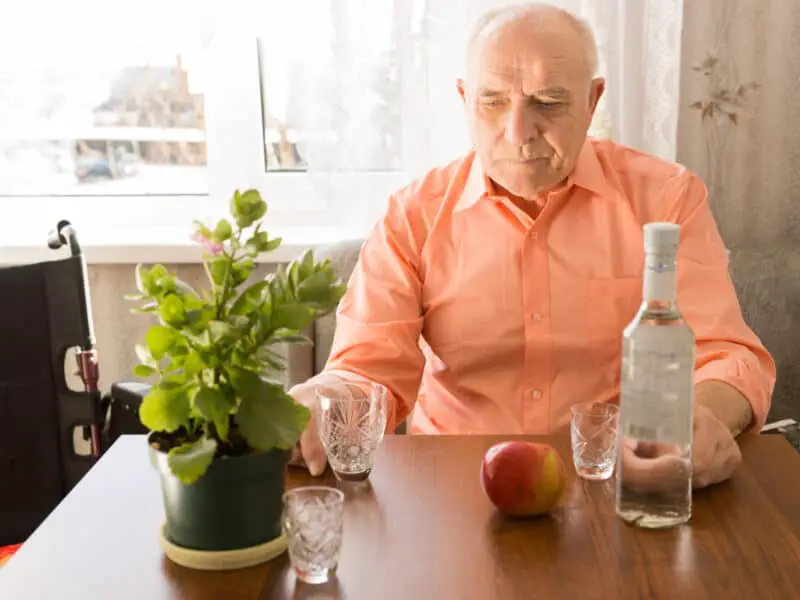
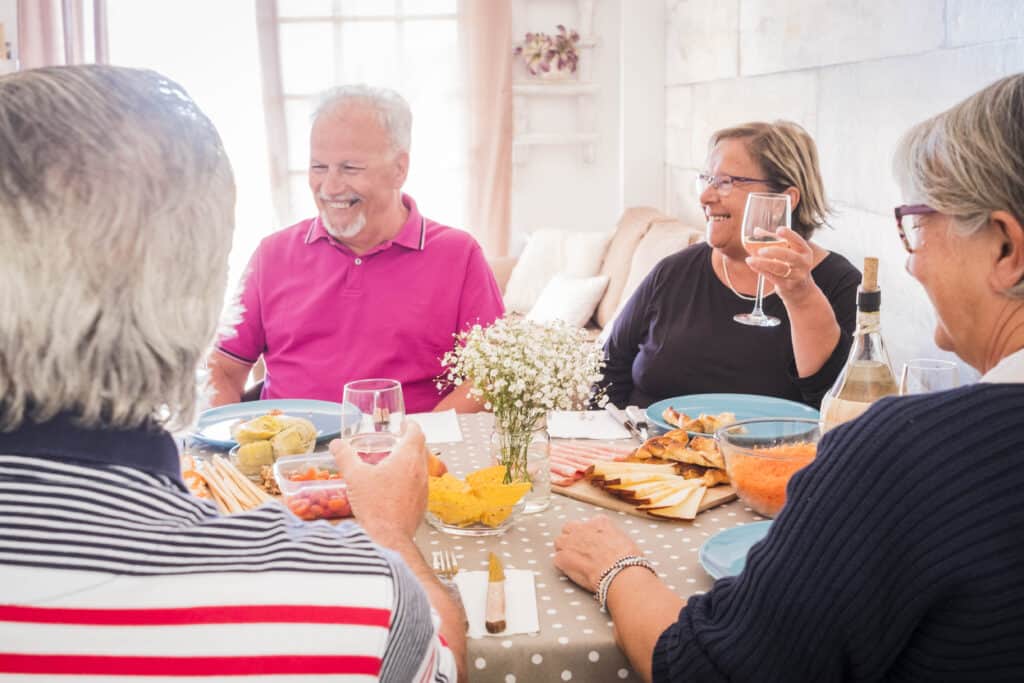
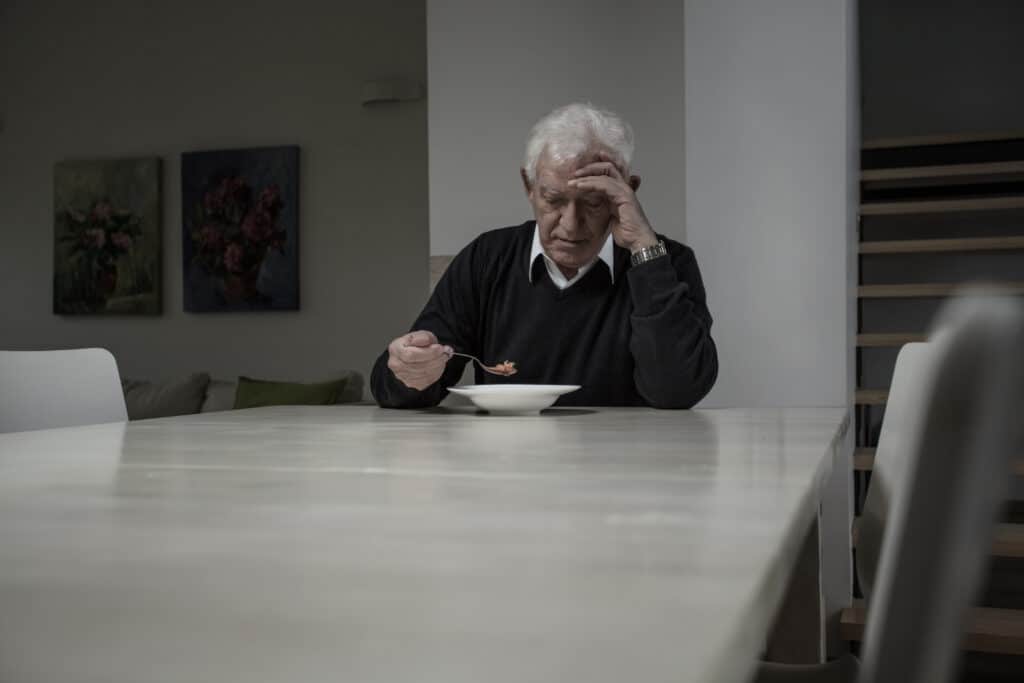
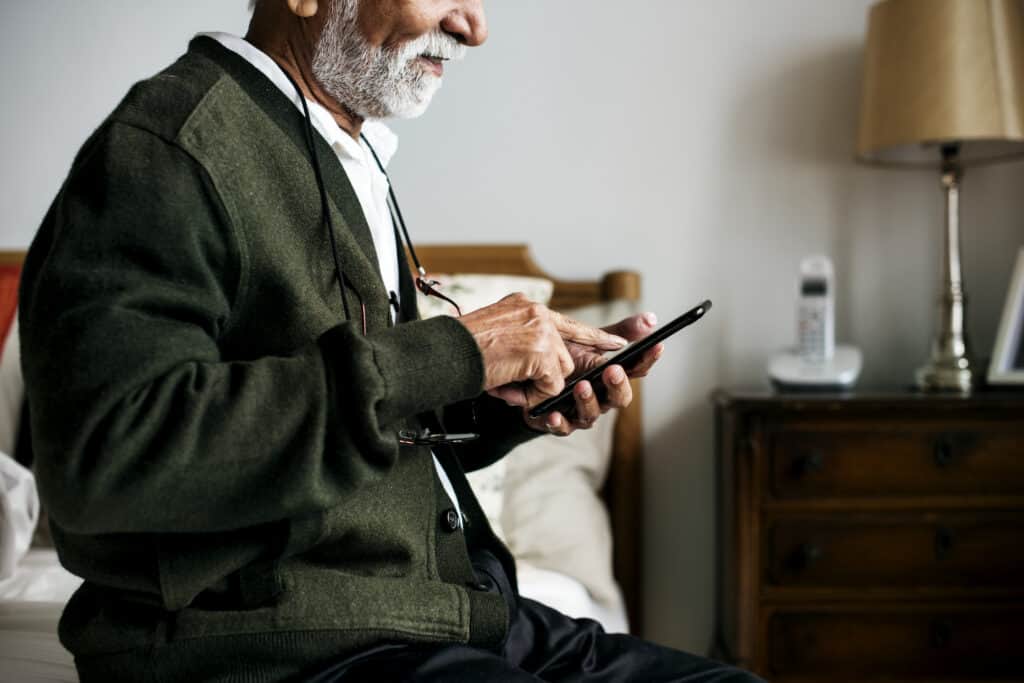
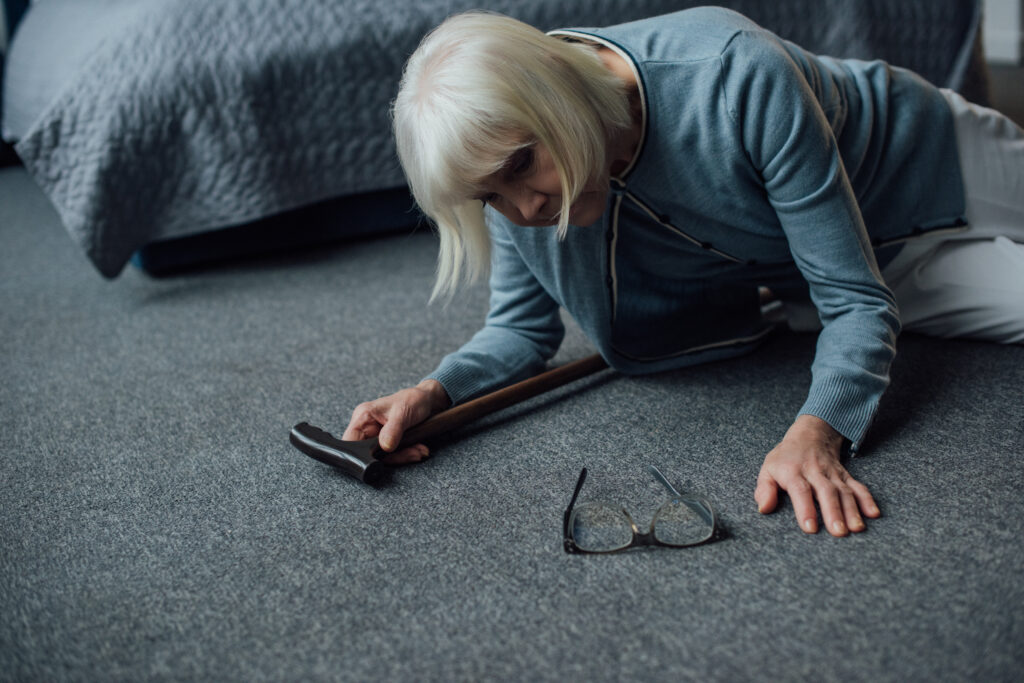


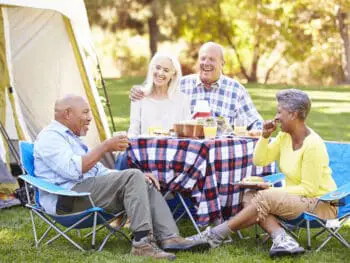


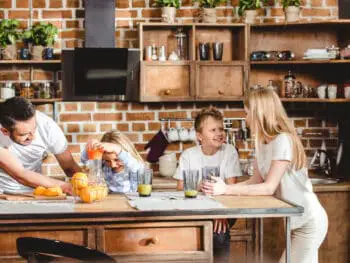
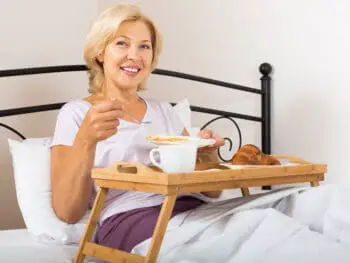

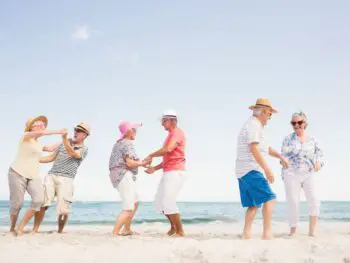
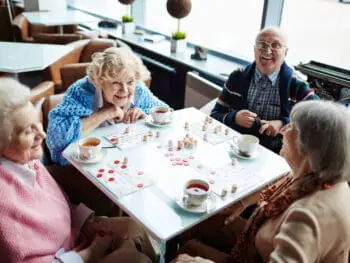
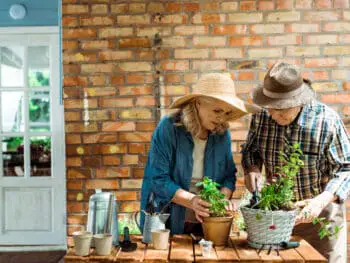
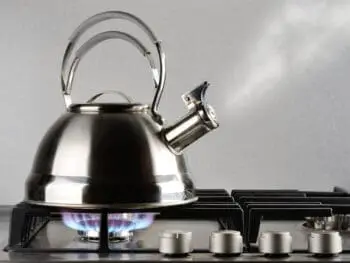
 31 Inventions That Are Making A Difference In The Lives Of Older Adults!
31 Inventions That Are Making A Difference In The Lives Of Older Adults!